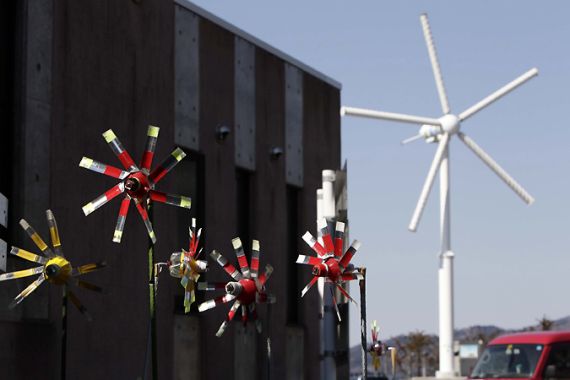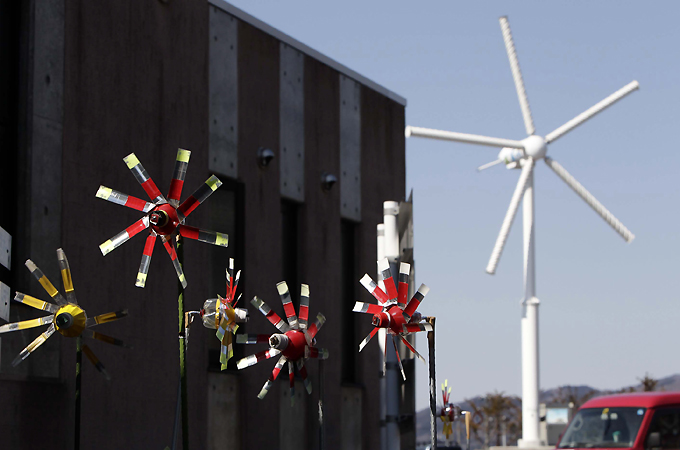Japan to rethink reliance on nuclear power
Prime minister Kan says renewable energy will be a key pillar of new energy policy following nuclear crisis.

 |
| Japan lags in wind, solar and biomass energy, areas the government plans to develop [EPA] |
Naoto Kan, the Japanese prime minister, has said that renewable energy would be a key pillar of the country’s new energy policy after one of the worst nuclear crisis in years, but that it would still rely on nuclear power for much of its electricity needs.
Kan also said on Tuesday that Japan’s basic energy plan to build new atomic reactors to increase the share of nuclear power in electricity supply in the future must be reviewed from scratch.
Keep reading
list of 4 itemsWorld’s coral reefs face global bleaching crisis
Why is Germany maintaining economic ties with China?
Australia’s Great Barrier Reef suffers worst bleaching on record
The massive earthquake and tsunami on March 11 badly damaged the Fukushima Daiichi nuclear plant in northeast Japan, and the prolonged crisis could hamper Japan’s efforts to reduce its use of fossil fuels.
“The current basic energy policy envisages that over 50 per cent of total electricity supply will come from nuclear power while more than 20 per cent will come from renewable power in 2030. But that basic plan needs to be reviewed now from scratch after this big incident,” Kan told a news conference.
“I think it is necessary to move in the direction of promoting natural energy and renewable energy,” he said, citing wind, solar or biomass energy as possible alternative sources – areas that Japan lag globally.
Japanese engineers are still trying to gain control of the Fukushima plant, 240km north of Tokyo, whose cooling system was knocked out after the twin disasters and four out of the six reactors at the plant remain volatile.
Kan, under fire for his handling of the nuclear crisis, last week called for Hamaoka nuclear plant, run by Chubu Electric, in central Japan to halt operations until it can be better defended against a major tsunami, and Chubu on Monday reluctantly agreed to this.
While some have lauded Kan’s calls, several business leaders and media, which tend to be close to the politically influential nuclear power industry, have criticised his move as being too abrupt and lacking a sound explanation.
Kan defended his decision, saying that the request was made after careful deliberation.
Japan will need to conduct a thorough investigation into the nuclear incident, Kan said, adding he wants to call on the international community for safer use of nuclear power.
The prime minister, who is the fifth leader of Japan in as many years, is likely to speak about his country’s atomic crisis at the Group of Eight summit at the end of May in France.